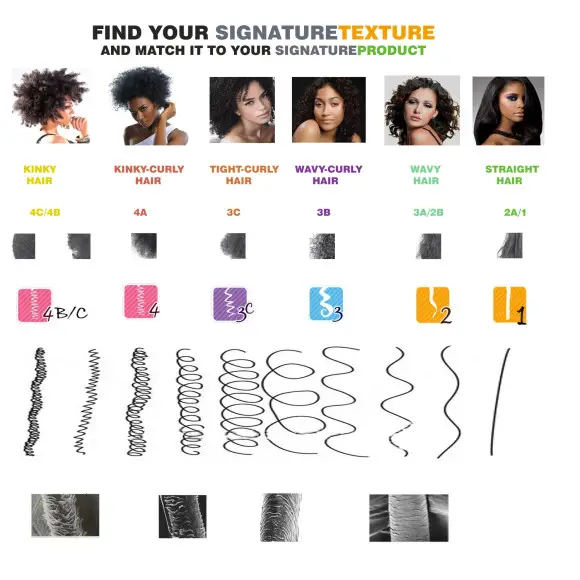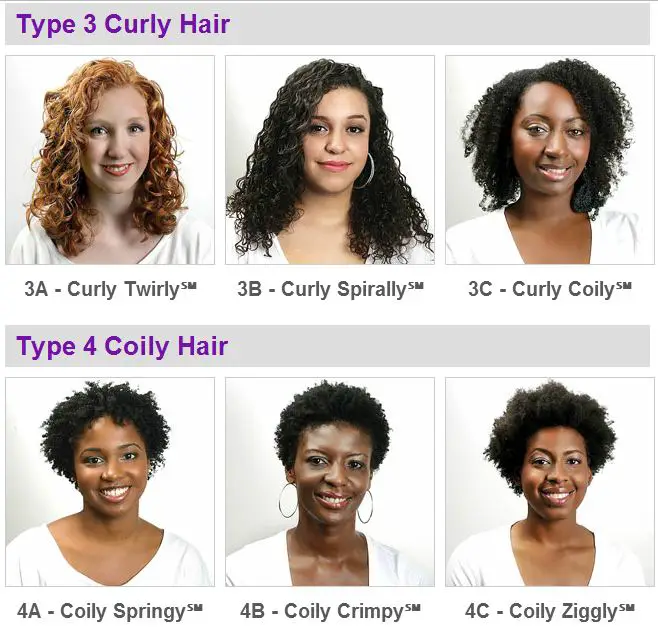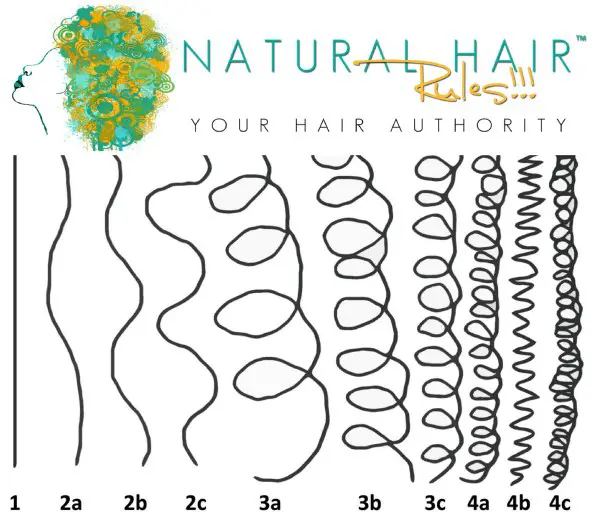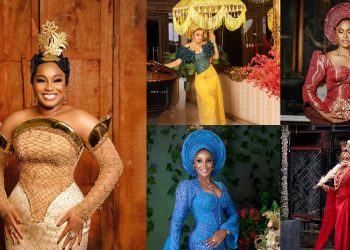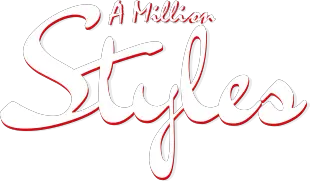Hair type is classified as the shape/texture of your hair and this is usually determined by race. The major hair type classification are grouped into four types and they are:
Type 1A hair- the naturally straight hair, Type 2 hair – the naturally wavy hair, Type 3 hair – the naturally curly hair or Type 4 hair – the naturally coily or kinky hair
Black people’s hair usually falls under two main types: Types 3 and 4 hair. Here is a brief explanation on the differences within each classification.
Curly hair types (type 3 hair)
3a hair has well defined loopy curls but it may be prone to frizz.
3b hair curls are well defined with less space between each bend and curve than 3a hair. The texture may be coarse and dense.
3c hair has a defined corkscrew shape and has the smallest space between the bends in the hair strand of all the type 3 hair types.
Kinky hair types (type 4 hair)
4a hair has a defined curl pattern almost like an “s” shape. Generally speaking it retains moisture fairly well, but as with most curly hair types can still be prone to dryness.
4b hair has a “z” shape pattern and has a more fluffy cottony appearance. Due to the bends and curves in the hair strand it is highly susceptible to dryness and breakage. This hair type shrinks up to 70% so without stretching out the hair it will appear shorter than it actually is.
4c hair looks similar to 4b hair type only it is more tightly coiled. In its raw state (no products added and freshly washed) it does not have a defined curl pattern. Coils have to be defined by either twisting, braiding, or shingling through the strands. Many 4c naturals have shrinkage up to 70% or more. So while your hair may be 10 inches long it may appear like you only have 3 inches of hair if you do not stretch your hair out. It is the most fragile hair type.
It’s quite common for us to have more than one texture in our hair. Your edges may be 4b while the majority of your hair is 4a type. Or you may have 4a hair with some 3c strands for example. Remember no two heads of hair are alike. Hair type systems are good for learning about your hair or what could potentially be best for it, but they are by no means an absolute standard. The knowledge should be used as guidance, but ultimately always go by what works best for your hair.
/
